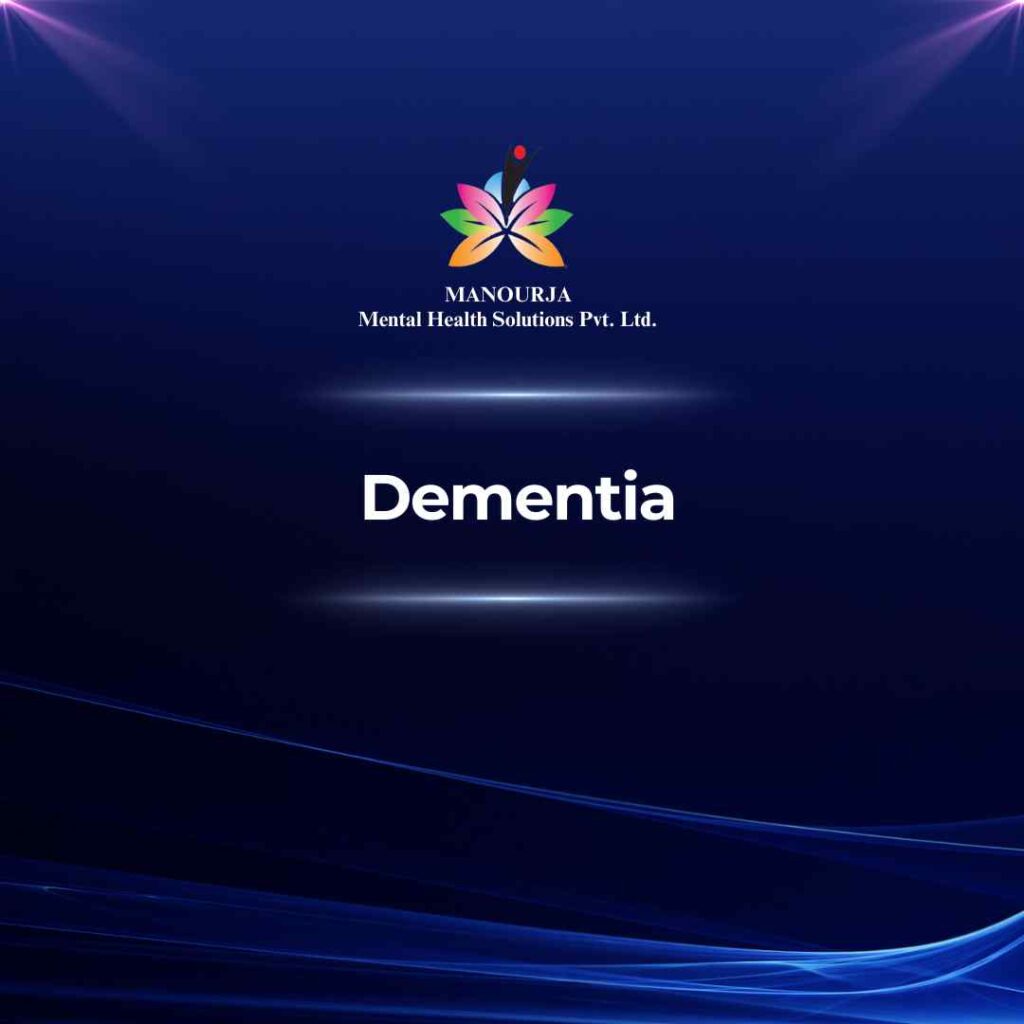Dementia

Dementia is a broad term used to describe a decline in cognitive function severe enough to interfere with daily life and independent functioning. It is not a single disease but rather a syndrome that involves a deterioration of memory, thinking, behavior, and the ability to perform everyday activities. Dementia primarily affects older adults, although it is not a normal part of aging.
Dementia as a Sign and Symptom of Mental Illness
Dementia is characterized by a set of cognitive and behavioral symptoms that indicate a decline from a previously higher level of functioning. When present as a sign or symptom of mental illness, dementia manifests through several core features:
Core Features of Dementia
- Memory Loss: Difficulty remembering recent events, names, and faces.
- Confusion and Disorientation: Trouble understanding time, date, or location.
- Language Problems: Difficulty finding the right words or understanding language.
- Difficulty with Complex Tasks: Struggling to plan, make decisions, or solve problems.
- Personality Changes: Alterations in mood, behavior, or personality, such as increased agitation or withdrawal.
- Impaired Judgement: Poor decision-making or difficulty with reasoning.
These symptoms can significantly impact a person’s ability to perform daily activities and maintain independence.
Mental Illnesses in Which Dementia is Present
Dementia can be a primary symptom of several mental illnesses and neurodegenerative disorders. Here are some key conditions where dementia is present:
Alzheimer’s Disease is the most common cause of dementia, accounting for 60-80% of cases. It is characterized by the gradual onset of cognitive decline, starting with memory loss and progressing to severe impairment in intellectual and physical functions.
Vascular Dementia is the second most common type of dementia and is caused by reduced blood flow to the brain, often following a stroke or series of mini-strokes. Symptoms can vary but generally include difficulties with problem-solving, slowed thinking, and focus.
Lewy Body Dementia
Lewy Body Dementia involves abnormal deposits of a protein called alpha-synuclein in the brain. It leads to symptoms such as fluctuating attention, visual hallucinations, and motor symptoms similar to Parkinson’s disease, along with cognitive decline.
Frontotemporal Dementia
Frontotemporal Dementia (FTD) affects the frontal and temporal lobes of the brain, which are associated with personality, behavior, and language. Symptoms include significant changes in personality and social behavior, along with language difficulties.
Parkinson’s Disease Dementia occurs in some individuals with Parkinson’s disease. It involves the development of cognitive impairment and changes in memory, executive function, and visual-spatial abilities.
Huntington’s Disease is a genetic disorder that causes the progressive breakdown of nerve cells in the brain. Dementia symptoms in Huntington’s include cognitive decline, personality changes, and motor dysfunction.
Mixed Dementia refers to a condition where multiple types of dementia occur simultaneously, such as Alzheimer’s disease and vascular dementia. Symptoms can vary widely depending on the areas of the brain affected.
Creutzfeldt-Jakob Disease (CJD) is a rare, rapidly progressing neurodegenerative disorder caused by prions. Symptoms include rapidly worsening dementia, memory loss, and behavioral changes.
Chronic Traumatic Encephalopathy (CTE)
Chronic Traumatic Encephalopathy (CTE) is associated with repeated head injuries. Symptoms include memory loss, confusion, impaired judgment, aggression, and progressive dementia.
Alcohol-Related Dementia
Alcohol-Related Dementia results from prolonged excessive alcohol consumption leading to brain damage. Symptoms include memory impairment, difficulties with coordination, and personality changes.
Dementia is a significant sign and symptom of various mental illnesses, particularly neurodegenerative disorders. It involves a decline in cognitive abilities that interferes with daily life and independent functioning. Recognizing the symptoms and understanding the underlying conditions associated with dementia is crucial for timely diagnosis and intervention.
At MANOURJA, we believe in the transformative power of counseling. Our experienced therapists offer a safe and supportive space where you can explore your thoughts, emotions, and challenges. Through personalized counselling sessions, we’ll work together to develop coping strategies, build resilience, and achieve lasting positive change. Discover the path to a healthier, happier you with MANOURJA counselling services.
MANOURJA Rehabilitation Services
At MANOURJA, we’re dedicated to helping you in rebuild your life, after difficult times. Our rehabilitation services focus on understanding what you need to move forward, whether you’re recovering from addiction, trauma, or any psychological – social challenges. We create personalized plans, that are all about helping you, regain your strength and find hope again. With a caring team by your side, you’ll have the support to make real progress and take steps toward a brighter, healthier future.
